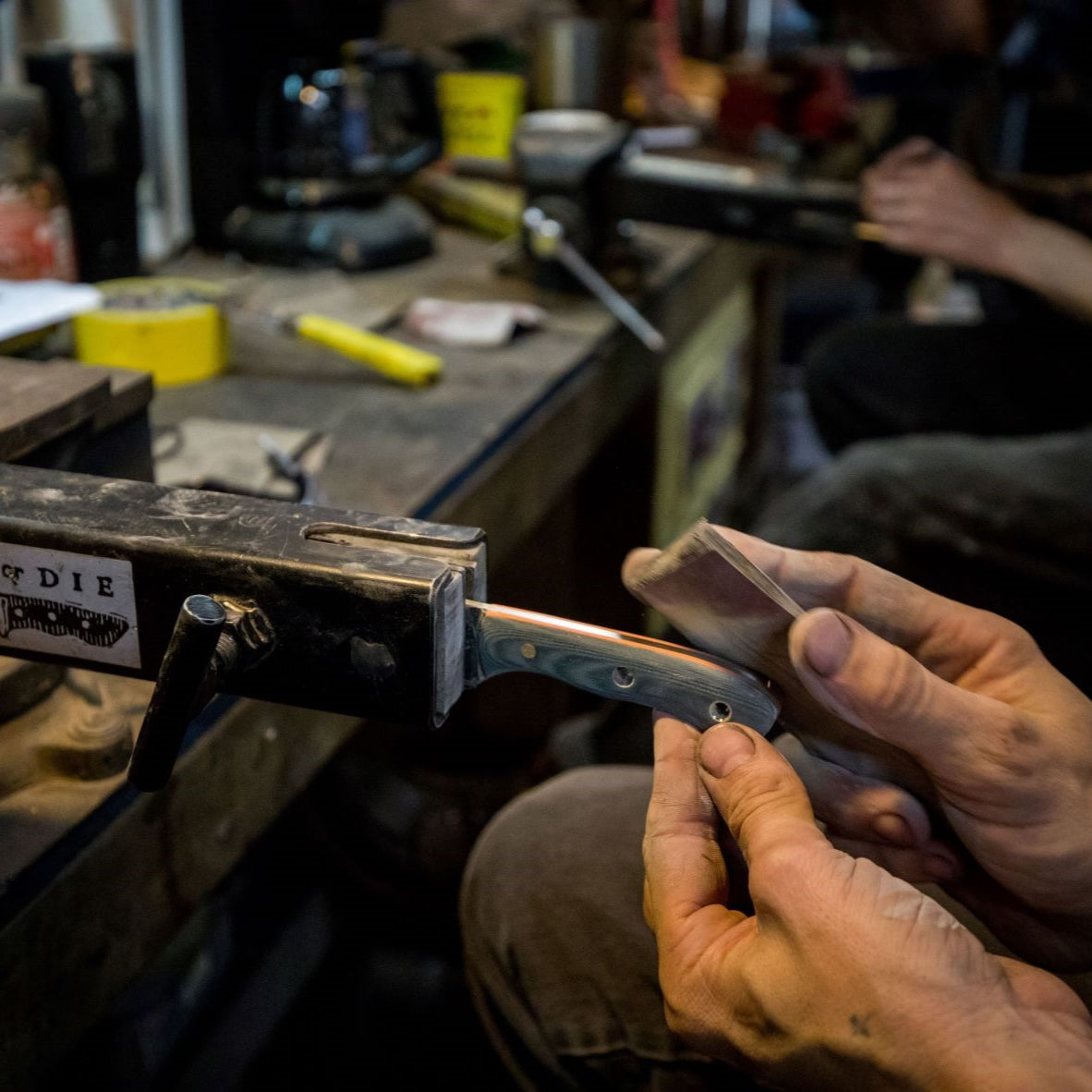
Making knives is hard. There is so much to learn and so many failures even after you have a good grasp on the basics. Trying to explain the value of what you do to people who just don’t get it is much harder. When I have a table at a knife or craft show, all I have to do is talk to people about what I do. I explain my process and materials, we talk about knife design and function and sometimes I make a sale. It’s hard to be turned on all day at these events. The exhaustion following them is much more acute than a full day of hard physical labor. Give me the satisfied feeling of a hard job well done, the approval of sore muscles and the peace of mind after honest physical exertion. The intensity of sales or outreach environments just takes a lot out of you. Mostly people are very positive but the dumb questions and comments are the worst.
“Why is it so expensive?” or “You know what you should make?” They just keep coming all day. Inevitably I will be lectured on absurd topics that are related to knives based on movies or TV. People will carelessly handle the knives on my table and make stabbing motions or quasi-ninja moves with them. Many people will rub their thumbs across the edges of the knives, depositing their DNA along with corrosive human palm grease. Spittle will land on the blades and etch tiny circles. Every event brings new and creative ways for people to insult the makers of handmade goods, completely unintentionally.
We have to let it go. There is no good in correcting people who don't want it and if we can have a generous outlook then we can assume that these thoughtless comments are indeed just that. Our culture has produced such a disposable world. Global trade has made quality goods amazingly affordable and the western countries’ astounding prosperity since the industrial revolution, especially since World War II has made America’s lower middle class literally rich by worldwide standards. We now live in a society where an individual can reasonably expect to afford anything they want. Maybe not the brand or the quality they want, but there is always a cheap online or big box store alternative.
So as I find myself standing at a table with handmade knives for sale, confronted by a potential customer clothed in apparel made exclusively in developing countries with a belly full of fast food, I have to understand where this guy is coming from. He must like the knives. Why would he bother to look or comment if he had no interest? He is confronted with a product that he definitely wants but is not prepared to spend ten times the cost as what he expects to pay for a knife. He may feel disappointment or a misguided embarrassment at not being able to just frivolously spend hundreds of dollars on a whim. So the comments tend to reflect his negative emotions and become backhanded compliments, embarrassing questions or just a quick glance before moving on. I know these things because I have been that guy, plenty.
Fortunately, most people are encouraging and excited to see what you have been creating. The positive comments far outweigh the negative and it can be quite humbling when people show actual awe at what you do. I remember the way I felt when I first met someone who had made their own knife. Before that I just assumed that things like knives were all made in factories. It never occurred to me that everything in our built world is made by people. In a world of increasing automation, many production items still pass through the hands of multiple people on their way to becoming worldwide commodities.
Unfortunately, humans suffer from a condition known as Negative Bias. We give far more weight to negative information than positive. This helps explain why we care about what some Rando says about our work. Have you ever noticed that even after several positive experiences that one negative interaction can ruin the rest of your day? I have found myself brooding over an argument for weeks. The scientists who study human interaction say that our brains need more resources to process negative information, that we are more likely to attribute a negative outcome to another person's intentional motives than not and that negativity attracts and retains our attention far more than positive information. After all, bad stuff can hurt you so you have to pay more attention in order to avoid it. Bummer.
So I just answer the questions as best I can depending on the person. Some need a quick explanation, some respond well to humor and others are genuinely curious. I explain how much longer handmade knives take to make than production knives. I tell them about the rarity and special nature of the handle materials, the high end alloys of steel and the high level of sophistication involved in a proper heat treatment. I talk about the edge geometry and design elements. Then I introduce the intangible aspects such as the value of having a handmade item of high quality they can pass on to others in their family. I suggest that buying from someone local or domestic if I’m out of town has value and that I back my products for life. I tell them a story, and the story is everything.